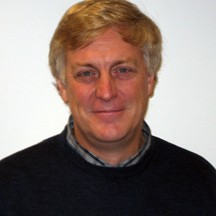
David R. Hyde, Rev. Howard J. Kenna, C.S.C., Memorial Director of the Center for Zebrafish Research at the University of Notre Dame, has been named a regular member of the National Institutes of Health (NIH) Center for Scientific Review Biology and Diseases of the Posterior Eye Study Section for the term 2009 to 2013.
Members of the study section are selected on the basis of their demonstrated competence and achievement in their scientific disciplines as evidenced by the quality of research accomplishments, publications in scientific journals and other significant scientific activities, achievements and honors.
Study sections review grant applications submitted to the NIH, make recommendations on these applications to the appropriate NIH national advisory council or board, and survey the status of research in their fields of sciences.
Hyde studies a variety of processes associated with the zebrafish eye, including development of the retina and lens, retinal cell death (neuronal degeneration) and the role of adult stem cells in regeneration of retinal neurons. The zebrafish retina is an excellent model because it serves as an easily accessible portion of the central nervous system. This work has direct relevance for understanding the mechanisms of neuronal cell death in a variety of human retinal diseases, such as macular degeneration, retinitis pigmentosa, diabetic retinopathy and glaucoma, and the development of novel stem cell therapies.
Under Hyde’s direction, the Center for Zebrafish Research is developing state-of-the-art approaches to study and utilize zebrafish in medical research. This includes genetic, molecular, electrophysiological and behavioral approaches. The center is one of the largest zebrafish facilities in the Midwest and houses a large collection of mutant and transgenic zebrafish.
Hyde, who has been a member of the Notre Dame faculty since 1988, earned his bachelor’s degree from Michigan State University and his doctorate from Pennsylvania State University. He was a postdoctoral research fellow at the California Institute of Technology before coming to Notre Dame.